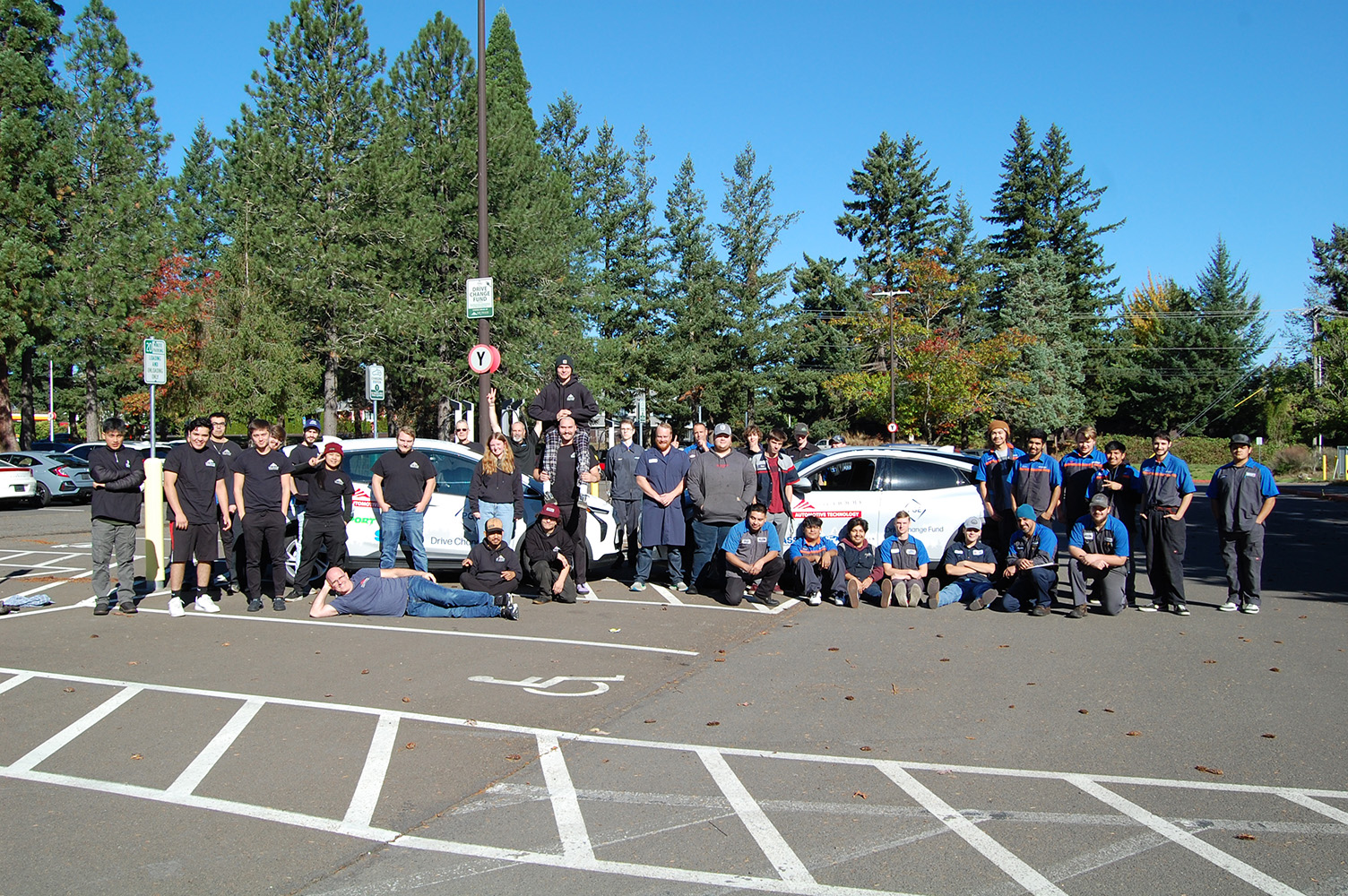
Secretary of Energy Calls Out Mt. Hood Community College For Energy Efficiency Efforts
February 09, 2024Mt. Hood Community College (MHCC) continues to demonstrate its commitment to sustainability and energy efficiency with a series of initiatives aimed at reducing its environmental footprint and lowering energy costs. The college's proactive approach to energy conservation has garnered recognition from Secretary of Energy Jennifer Granholm, who praised MHCC's pioneering efforts during the Association of Community College Trustees National Legislative Summit on Monday, Feb. 5.
“[Mt. Hood Community College] was ahead of the curve. You installed all of this energy saving equipment years ago and saved—and have been saving—half, more than half, on your electricity bill, which is amazing! Just basic energy efficiency equipment installed,” Granholm said.
One of MHCC's latest endeavors includes the installation of electric vehicle chargers on campus, providing convenient access to sustainable transportation options for students, faculty, and staff. This addition aligns with the college's broader strategy to promote eco-friendly practices and reduce reliance on fossil fuels.
Furthermore, MHCC has undertaken several retrofitting projects to enhance energy efficiency across its facilities. Recent upgrades include optimizing the boiler and pool loop in the aquatic center to operate at lower speeds, thereby conserving energy while maintaining optimal performance. Additionally, improvements to insulation in the roof infrastructure have been implemented to regulate building temperatures effectively, minimizing energy consumption throughout the year.
"We have been doing energy projects every year to keep saving above and beyond the previous year,” Mapping and Sustainability Specialist Troy Builta said.
The college's dedication to renewable energy solutions is exemplified by the installation of a 100KW solar photovoltaic system atop the Vista Dining Area in 2008. This system contributes electricity directly to the campus power grid, reducing reliance on traditional utility sources. Since its installation, the solar array has generated an impressive 668 megawatts of clean energy, further solidifying MHCC's position as a leader in sustainable practices.
Continuing its trajectory of innovation, MHCC embarked on a comprehensive facility improvement project, known as JCI Phase 1, in 2009. This initiative involved the replacement of aging chillers and boilers, as well as the decoupling of key buildings from the central utility plant. Notably, a solar water heater was installed on the roof of the aquatic center to provide efficient heating for the facility's 50-meter pool, further reducing energy consumption.
Subsequent phases of facility upgrades, including JCI Phase 2 in 2013, have yielded significant energy savings for MHCC. The adoption of advanced technologies such as fan wall systems, energy-efficient lighting, and heat pumps has resulted in more than 3 million kilowatt-hours (kWh) and 236,000 therms saved, contributing to both cost reduction and environmental stewardship.
In 2014, MHCC solidified its commitment to energy management by partnering with the Energy Trust in a Strategic Energy Management (SEM) cohort program. By collaborating with local businesses and colleges, MHCC has exchanged ideas and best practices to optimize energy systems, resulting in an average annual utility savings of $60,000.
"We are proud to lead the way in sustainable practices and energy efficiency within the community college sector," said Mt. Hood Community College President Dr. Lisa Skari. "Our ongoing efforts reflect our commitment to environmental stewardship, cost savings, and providing a healthy, sustainable campus for our students and staff."
